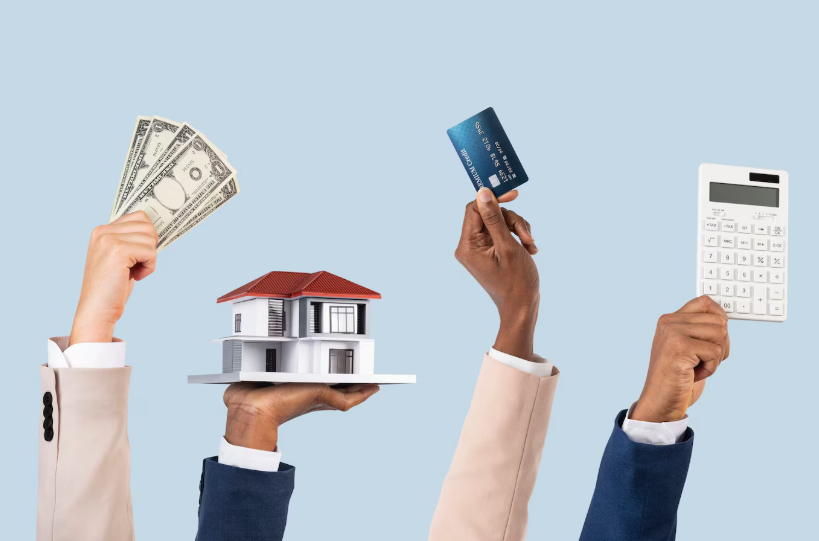
Seeking to know how to get a loan with bad credit? Then this article is for you. A bad credit or even a negative credit score might seem the worst-case scenario for many, with very slim chances of securing any loan offers, but this is not entirely impossible. Even if your credit score is in a pretty bad shape due to being unable to promptly settle your loan debts as at when due or because of other debt management-related issues.
All hope is not lost, as with even a little credit score, you still have a chance at securing good loan offers. Though this might require additional efforts of research, resource gathering, and even urgent financial strengthening to bolster your chances of seeking loans.
However, it is important to know that coming to terms with the overall financial situation within the nation is highly critical to accessing loan offers, as many lenders will prefer to give loans to applicants with solid credit scores, which shows their good track record, in contrast to loan applicants with bad credit scores, usually leaving them financially stranded and helpless.
For this reason, loanees with bad credit scores might even be pushed into the welcoming hands of fake loan apps that might use the guise of low-interest loan offers and unrealistic amounts and rates to entice unsuspecting targets despite their bad credit scores. These fake loan apps will use this front to hide their real intent to scam, defraud, and exploit these vulnerable sets of people.
To prevent this probable outcome, this blog article has been designed to explore strategies one can take to get a loan offer despite having a bad credit score. We’ll start from the basic understanding of credit scores, various types of loans available for bad credit, and steps to negotiating for loans despite your bad credit status.
What is a credit score?
Your credit score is a very important determinant to verify and ascertain your qualification for a particular loan. It is typically a three-digit number that is used to decipher your credibility based on an evaluation of your financial history. It can be similarly likened to your personal rating that indicates your financial creditworthiness.
Most loan apps and even physical lenders at times use this number to evaluate the risks they bear when they lend you money, so in essence, the higher your credit score, the more your chances of being approved for a loan.
Impact of credit scores within the Nigerian loan system.
In Nigeria, credit scores are awarded to individuals based on a concise evaluation of a whole lot of crucial financial criteria, including your payment history, credit history duration, new credit applications, and credit utilization, among others. Bad credit scores are usually established slowly, even reaching up to negative scores at times, using the criteria of bad financial data that is accumulated over time.
Key influencing factors that can dampen a good credit score to a bad one include late loan payments and excessive loan credit usage. While consistent loan repayments, maintaining default loanable amounts, and minimal credit applications can help to significantly build and improve your credit score over time.
For an individual to check his credit score, you can contact approved credit bureaus like the prominent CBAN- the Credit Bureau Association of Nigeria, to obtain legal credit reports. They will perform the critical assessment needed to produce a qualitative score for individuals who want to check their credit score.
What are bad credit loans?
Bad credit loans are loans that are specially designed for individuals with bad financial history and credit scores. Their credit reports are usually very bad to the extent that the traditional banking system might not even consider them for any loan offers, and even lenders that want to take on the risk will include higher interest rates and stronger repayment restrictions to mitigate the risks of loan refund issues.
Even with bad or negative credit scores, there are still some specific loan types available, though they each come with their unique interest rates, eligibility requirements, and repayment terms.
Listed below are some of them.
Guarantor-based loans
This is a type of loan in which you need somebody (usually a close associate or relative) called a guarantor to vouch for you and make the necessary loan repayments in case you can’t deliver. This means that the guarantor bears the risk of potentially losing his monetary assets in case he also struggles with the loan repayment. Finding a guarantor with a good, high credit score will help with better loan limits and rates.
Secured loan offers
These are loans in which you use assets such as cars, houses, and land as collateral, which are to be collected by the lender in case you are unable to repay your loan. Despite bad credit, these types of loans are readily available as the collateral already greatly reduces risks on the lender’s part. Due to this, you might even negotiate higher loan limits and interest rates than you would normally get.
Payday loans
These are basically short-term loans that cover financial expenses till you get your next income pay. They are usually too costly, with high interest rates and strict repayment limits, hence they are usually available to bad credit borrowers.
Credit union loans
Credit unions are NGOs, hence they will grant their members loan offers despite their poor credit scores. The key factor to their loan offers, however, is membership in the credit union. With this in mind, many credit unions restrict their activities to people based on specifics of geographic location, occupation and other common interests.
Other bad credit loans include: Debt consolidation loans, Microfinance Loans, budgeting loans, and peer-to-peer loan offers.
Steps on how to get a loan with bad credit
You should know that your bad credit score isn’t set in stone. It was badly shaped due to your unruly, financial behavior; hence, you still have the capacity to improve it. There are outlined steps to take to improve your chances of getting the loan you want despite your bad credit. So even with your negative credit score, you can get financial assistance by following these steps.
1. Selecting the appropriate lender
When in search of lenders for loan offers, they usually resort to those that don’t place much emphasis on loan credit scores, with more priority given to providing loans and settling it promptly in specified repayment terms.
Though this category of lenders is usually more forgiving, with their seeming oversight of your bad credit, they compensate for this with high interest rates, additional fees, and complex payment terms. So there is a need to evaluate different lenders and pick the right one, so that you are sure that you can meet their conditions and specifications.
After finding the lender, research properly to check if the lender is genuine and credible to prevent cases of loan scams. To do this, check for any registration or certification by a regulatory, financial agency like the CBN to guarantee a good track record. Also, pay attention to other people’s reviews and testimonials to ward off any deceptive antics.
In addition, never forget to evaluate the lender’s professionalism during your research. Thoroughly examine him with questions and inquiries on relevant matters about the loan that are unclear to you. A credible lender should be transparent with their answers and can even guide you with the loan application process, making sure to answer any related questions to allay your fears.
2. Prepping your loan application
To improve your chances of securing loans, always ensure that your loan applications are thorough and well-referenced. Lenders often want to ascertain and verify your identity, income, earnings, and financial credit history to ensure that it is both true and accurate to your claims. To this end, having these relevant documents prepped and well ready ahead of time will help to easily facilitate the loan application process
Always consider the event that you will need a guarantor or collateral medium to secure these loans due to your bad credit scores, and usually have them readily available before you even apply at all in the first instance. You should know that collateral and a guarantor will improve the lender’s confidence in giving you the loan and will significantly help to secure faster loan approvals despite low credit scores.
In addition to this, you can check our pre-qualification alternatives that most lenders now freely provide to evaluate yourself to see if you can secure their loans without any changes to your credit score. This will help to save time and determine if you can meet up with a loan first before committing to its application
3. Negotiating Terms
Just because a loan lender has specified certain terms associated with the loan offer doesn’t mean that you are written off because of your bad credit score, and hence cannot negotiate better loan terms for yourself. Once you have met up with the agreed loan specifications and requirements prerequisite to such loans, either of guarantor or loan collateral, you can negotiate cheaper interest rates, lesser overall costs, higher loan limits, or even a higher repayment duration.
Lenders, after analyzing and cross-verifying the loan applications, income earnings, collateral or guarantor availability, might reconsider their terms and provide more improved loan options as soon as they can effectively establish that lending you the money is of a lower risk.
4. Rebuilding and improving your credit
The best strategy to improve your loan options as a bad credit borrower is simply improving your credit score. After receiving a loan offer, always put effort into ensuring that you pay it off at the agreed-upon periods to manage your debt effectively.
This will greatly improve your credit scores while keeping you away from any aggressive repayment harassment. Maintaining a good credit score also entails that you avoid accumulating debts or borrowing two or more loans at a time. Doing this will keep your credit utilisation very low, as low as less than 30% of your expected credit score. You should also adequately check your credit score from time to time to keep it updated and free from any system inaccuracies that might damage your credit report.
How to increase your credit score
Listed below are strategies to improve your credit score within the Nigerian system.
- Strictly adhere to timely loan repayments as agreed with the lender.
- Avoid applying for two or more loan credits simultaneously to prevent financial exhaustion, which can negatively affect your credit.
- The use of secured loan offers, i.e, loans backed with guarantors or collateral, can help to significantly improve your credit.
- Put in mind that rebuilding credit is not a one-time job and requires consistent efforts and commitment.
- Avoid impulsive financial mistakes that could further destroy your credit score.
Conclusion
Seeking loans with a bad, poor credit score can be a very herculean task within the Nigerian system, but it is very doable using the proper steps and strategies. From the article, we have highlighted steps ranging from selecting the appropriate lender, prepping your loan application, negotiating terms, and even going as far as exploring various ways that we can build and improve bad credit scores.
We now know that it is important to verify money lenders, set good loan applications, and most importantly, to settle repayments promptly to improve your credit score. So with this event, individuals with write-off credit scores can now obtain financial assistance to settle their immediate needs.
Recommended Articles
How to spot fake loan apps – 5 Steps
List of fake loan apps in Nigeria – 40 Loan Apps you must avoid
How to get student loan in Nigeria – 11 Easy steps
How to get approved for a business loan in Nigeria – 10 Easy Steps





